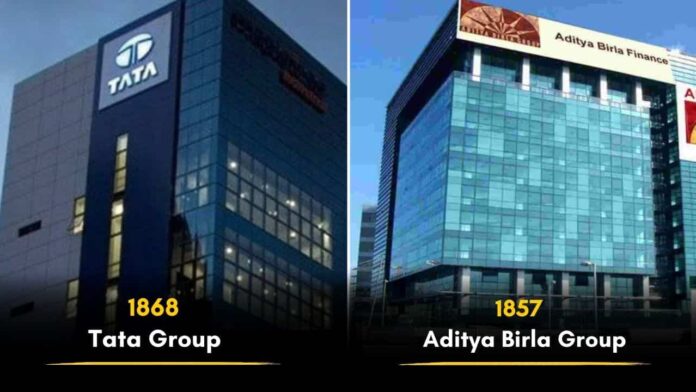
India is a hotbed of innovation and entrepreneurs, but it’s also a hotbed of tradition and businesses that have been there for decades. Today, we present to you some of the oldest Indian businesses that have been operating successfully for over a century. We’ve been utilising their products for years and it’s about time we learned more about them.
1. Parry & Co. | 1788
Thomas Parry, a Welshman, established a banking and piece goods firm in the late 1780s. Parry went on to start a broad trade company that dealt in sugar and spirits in the early 1800s. Before being split up into East India Distilleries and Sugar Factories Ltd, the industry thrived for decades.
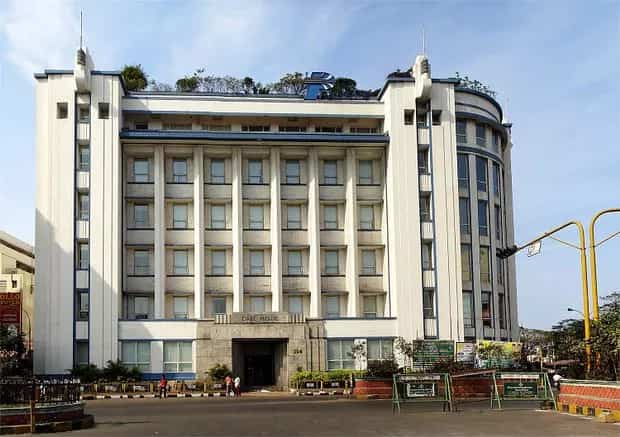
The companies merged once more in 1962 to form EID Parry, which was purchased by Murugappa Group in 1981. Parry & Co., now Eid Parry Ltd., has been in business for over 200 years and continues to thrive in industries such as distillery, biofertilizers, and nutraceuticals.
2. The Times Group | 1838
The Times Group, or Bennett, Coleman and Company Limited, is one of India’s oldest family-owned businesses, with the Sahu Jain family maintaining a controlling stake. The Times of India, The Economic Times, Navbharat Times, Movies Now, Zoom, MNX, Times Internet, Radio Mirchi, and others are among the group’s subsidiaries today.
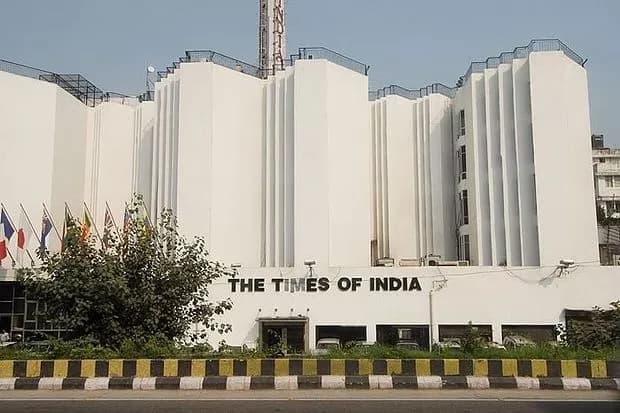
3. Aditya Birla Group | 1857
Another of India’s oldest family-owned firms is the Aditya Birla Group. Seth Shiv Narayan Birla began it in 1857 as a cotton trading company before Ghanshyam Das Birla built it into one of India’s largest aluminium producers. Kumar Mangalam Birla is now the group’s chairman, and it operates in a variety of industries, including metals, cement, financial services, telecommunications, and retail.
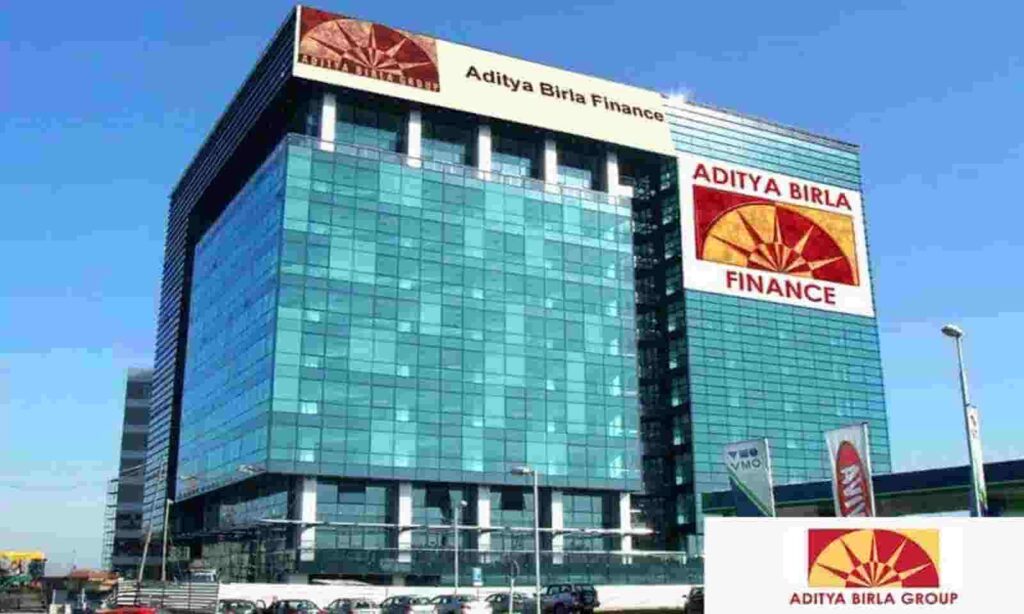
4. Bombay Burmah Trading Corporation | 1863
The Wallace Brothers of Scotland founded the Bombay Burmah Trading Corporation in 1863. It was founded to operate in the Burmese tea business and is India’s second oldest publicly traded corporation.
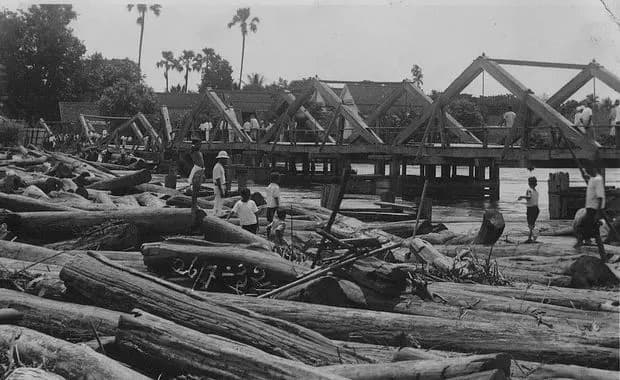
The corporation was a significant producer of teak by the 1870s, and it also had holdings in cotton, oil exploration, and shipping. Around the time of Indian independence, the Vissanji family bought the company from the Wallace brothers. It was afterwards purchased by the Wadia family. Its current businesses include tea and coffee plantations, auto electric components, healthcare, real estate, and weighing products.
5. Shapoorji Pallonji Group | 1865
One of India’s most valued private firms is the Shapoorji Pallonji Group. Littlewood Pallonji was started in 1865 as a building enterprise. They have built a reservoir on Malabar Hill, Brabourne Stadium, Jawaharlal Nehru Stadium, Mumbai Central Railway Station, and other notable projects in India. They are interested in a variety of businesses, including infrastructure, investment, oil and gas, and so on.
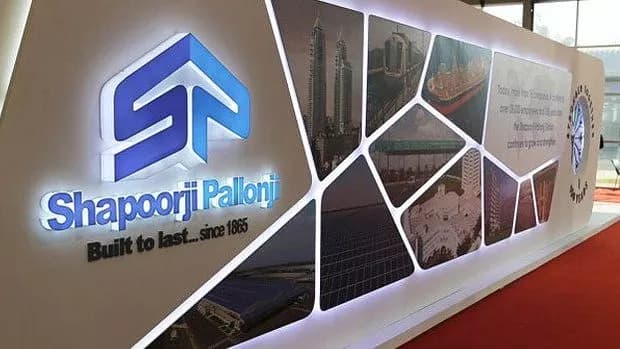
6. Tata Group | 1868
The Tata Group has been around for more than 150 years. It was founded in 1868 by Jamsetji Tata, dubbed the “Father of Indian Industry” by many. Jamsetji Tata’s three main goals were to build an iron and steel industry, generate hydroelectric power, and establish a world-class educational institution in the country.
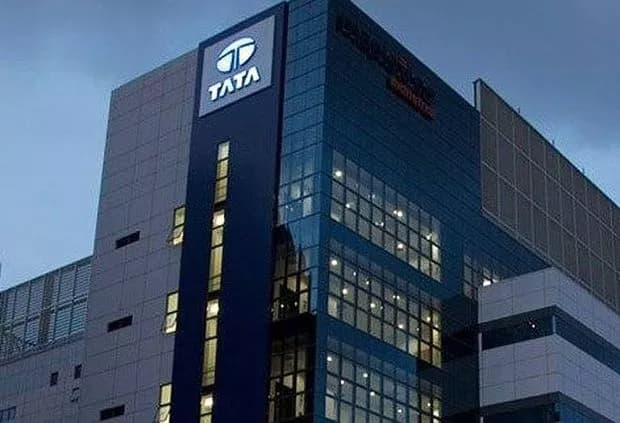
It is now India’s largest conglomerate, with products and services in more than 150 countries, including automotive, airlines, chemicals, defence, FMCG, hospitality, information technology, cement, steel, and other industries.
7. Bombay Dyeing Company | 1879
Nowrosjee Wadia founded the Bombay Dyeing Company in 1879 as a tiny company that dip-dyed Indian spun cotton yarn by hand. It is now one of India’s leading textile producers. It is the Wadia Group’s main company, and it is still going strong after 140 years.

8. Godrej Group | 1897
Ardeshir Godrej and Pirojsha Burjorji Godrej began the Godrej Group as a lock firm in 1897. It was the first company in India to use lever technology for locks. In 1902, it was also the first company in India to produce a safe. It then ventured into the soap industry. Godrej introduced India’s first indigenous typewriter in 1955. The Godrej Group, which is almost a century old and has given India several firsts, engages in Aerospace, Agriculture, Home Appliances, Consumer Goods, Furniture, and other areas.

First Indian Company Listed On Nasdaq
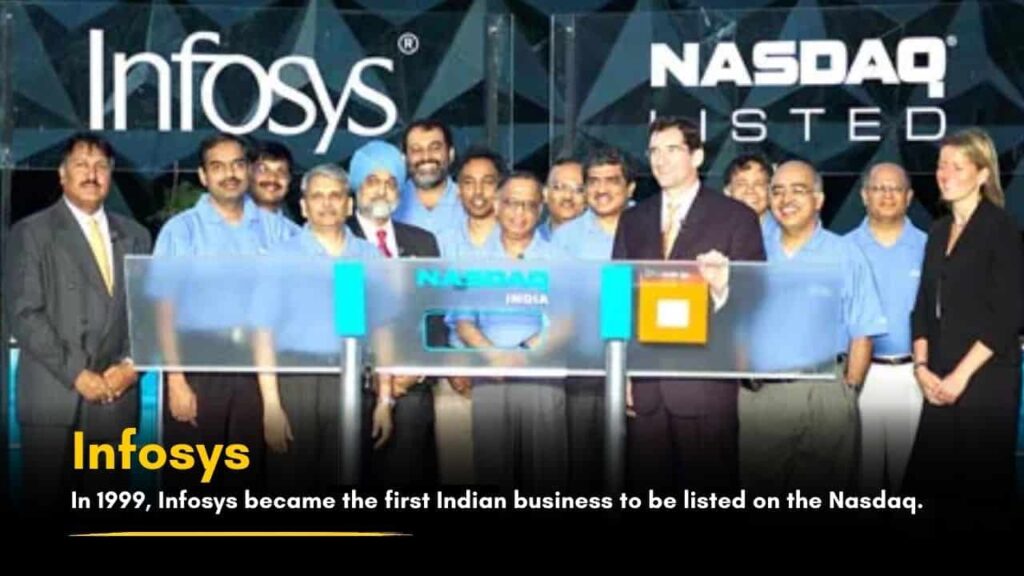
In 1999, Infosys became the first Indian business to be listed on the Nasdaq.
